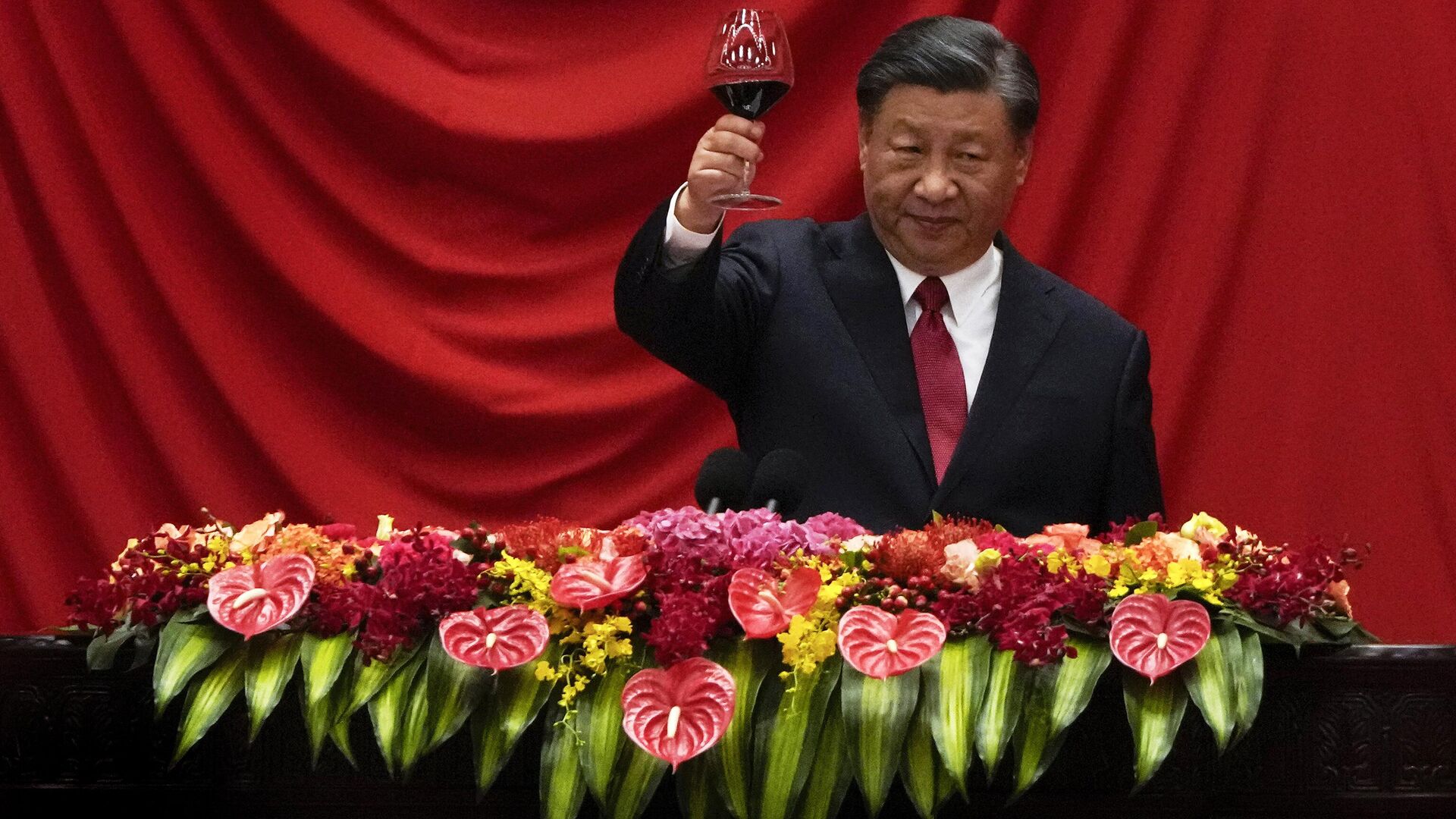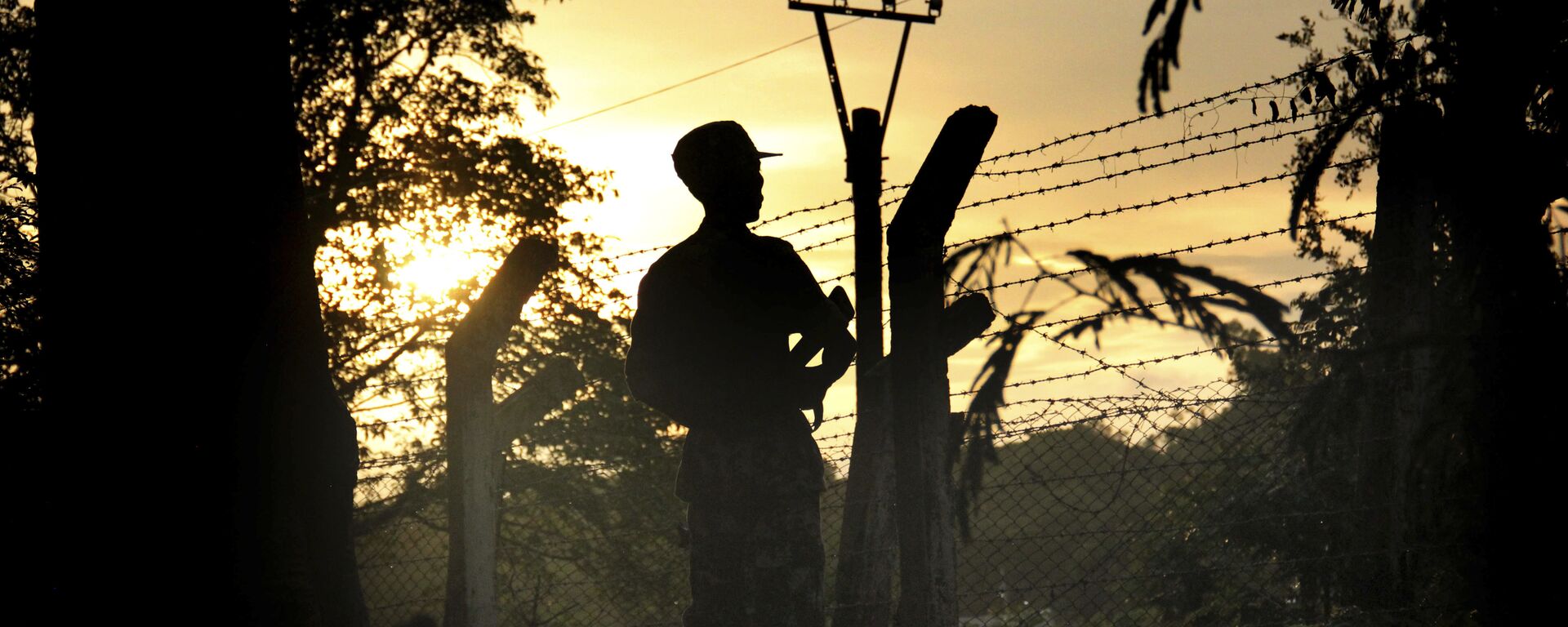https://sputniknews.in/20240216/myanmars-strategic-importance-for-chinas-belt-and-road-initiative-6576695.html
Myanmar’s Strategic Importance for China's Belt and Road Initiative
Myanmar’s Strategic Importance for China's Belt and Road Initiative
Sputnik India
China and Myanmar's military government have inked a supplemental pact for the Kyaukphyu deep-water port, indicating their joint efforts to revive the paused Belt and Road Initiative (BRI)
2024-02-16T20:14+0530
2024-02-16T20:14+0530
2024-02-17T14:09+0530
india
china
myanmar
government of india
ministry of defence (mod)
ministry of external affairs (mea)
manipur
strategic autonomy
indian army
indian navy
https://cdn1.img.sputniknews.in/img/07e8/01/0f/6212075_0:160:3072:1888_1920x0_80_0_0_a01978d3d3e5eecdf9d793ed33a5cf3a.jpg
Beijing and the military government of Myanmar have entered into a supplementary deal concerning the Kyaukphyu deep-water port, demonstrating their collaborative work to revitalise the stalled Belt and Road Initiative (BRI) project, according to media reports.This renewed initiative in Myanmar's turbulent western Rakhine state coincides with escalating violence between ethnic rebel factions and the junta, prompting repeated security alerts from the Chinese mission.The sudden offensive by ethnic armed groups in Myanmar has strategically obstructed two key roads connecting to China, a major trading partner. This interruption has effectively halted cross-border trade, depriving the cash-strapped junta of taxes and foreign currency.This blockade of vital transportation routes has already triggered market price hikes, while impeding the junta's ability to deploy reinforcements to tackle the ongoing offensive.China's Strategic Imperative of Kyaukphyu Port in Mitigating the 'Malacca Dilemma’Despite this reality, the Captain emphasised that “the Chinese hinterland, especially in the Yunnan Province, has established connections through pipelines and gas lines originating from the Kyaukphyu port. This offers an alternative and supplementary method for supplying oil to China's internal provinces”.“While it may alleviate some aspects of the "Malacca dilemma", it is unlikely to entirely replace the transportation of oil through pipelines extending from Kyaukphyu to the Chinese provinces. This elucidates the mechanics of energy transfer through pipelines”, he noted.Kyaukphyu Island's Importance for BRI & for Developing India's Sittwe Port The expert pointed out that “Kyaukphyu port, aside from evolving into an origin point for an oil pipeline, is witnessing a new development – China's assistance in constructing a submarine base on the same island. While ostensibly intended to house the two Chinese submarines provided to Myanmar, the scale of the infrastructure surpasses the requirements for these submarines”.“India faces challenges in matching the financial capacity and speed of infrastructure development demonstrated by Chinese companies,” he remarked.Assessing Issues on Indo-Myanmar Border & Chinese FactorAdditionally, Agnihotri highlighted that “the Indo-Myanmar border poses strategic concerns for India. If Myanmar aligns more closely with China, it may divert its focus, allowing non-state actors on both sides of the Manipur border to operate with relative freedom from government interference”.“In a broader context, this development can be seen as a repercussion of the Chinese government's engagement, distracting from dealing with these groups directly and consequently allowing them more leeway in their activities along the India border” said the Captain.
https://sputniknews.in/20231117/why-does-india-need-stable-myanmar-5443114.html
india
china
myanmar
manipur
indian ocean
indo-pacific
Sputnik India
feedback.hindi@sputniknews.com
+74956456601
MIA „Rossiya Segodnya“
2024
Swapna Nair
https://cdn1.img.sputniknews.in/img/07e7/09/12/4320104_0:0:681:681_100x100_80_0_0_ca8a7d4d582609272840ffdd1cde7278.jpg
Swapna Nair
https://cdn1.img.sputniknews.in/img/07e7/09/12/4320104_0:0:681:681_100x100_80_0_0_ca8a7d4d582609272840ffdd1cde7278.jpg
News
en_IN
Sputnik India
feedback.hindi@sputniknews.com
+74956456601
MIA „Rossiya Segodnya“
Sputnik India
feedback.hindi@sputniknews.com
+74956456601
MIA „Rossiya Segodnya“
Swapna Nair
https://cdn1.img.sputniknews.in/img/07e7/09/12/4320104_0:0:681:681_100x100_80_0_0_ca8a7d4d582609272840ffdd1cde7278.jpg
china, military government of myanmar, kyaukphyu port, belt and road initiative (bri), myanmar, rakhine state. ethnic rebel, chinese, ethnic armed groups, myanmar, china, cross-border commerce, taxes and foreign exchange, transportation routes, kyaukphyu port, chinese oil and gas import statistics, traditional shipping routes, pipelines, captain kk agnihotri (retd.), senior fellow at national maritime foundation (nmf), chinese hinterland, yunnan province, kyaukphyu port, china, malacca dilemma, pipelines, bri, india's sittwe port development, china, chinese submarines, myanmar, submarines, chinese naval, sittwe port, north of kyaukphyu island, chinese companies, manipur border, free movement regime, india
china, military government of myanmar, kyaukphyu port, belt and road initiative (bri), myanmar, rakhine state. ethnic rebel, chinese, ethnic armed groups, myanmar, china, cross-border commerce, taxes and foreign exchange, transportation routes, kyaukphyu port, chinese oil and gas import statistics, traditional shipping routes, pipelines, captain kk agnihotri (retd.), senior fellow at national maritime foundation (nmf), chinese hinterland, yunnan province, kyaukphyu port, china, malacca dilemma, pipelines, bri, india's sittwe port development, china, chinese submarines, myanmar, submarines, chinese naval, sittwe port, north of kyaukphyu island, chinese companies, manipur border, free movement regime, india
Myanmar’s Strategic Importance for China's Belt and Road Initiative
20:14 16.02.2024 (Updated: 14:09 17.02.2024) China and Myanmar's military government have inked a supplemental pact for the Kyaukphyu deep-water port, indicating their joint efforts to revive the paused Belt and Road Initiative (BRI)
Beijing and the military government of Myanmar have entered into a supplementary deal concerning the Kyaukphyu deep-water port, demonstrating their collaborative work to revitalise the stalled Belt and Road Initiative (BRI) project, according to media reports.
This renewed initiative in Myanmar's turbulent western Rakhine state coincides with escalating violence between ethnic rebel factions and the junta, prompting repeated security alerts from the Chinese mission.
The sudden offensive by
ethnic armed groups in Myanmar has strategically obstructed two key roads connecting to China, a major trading partner. This interruption has effectively halted cross-border trade, depriving the cash-strapped junta of taxes and foreign currency.
This blockade of vital transportation routes has already triggered market price hikes, while impeding the junta's ability to deploy reinforcements to tackle the ongoing offensive.
China's Strategic Imperative of Kyaukphyu Port in Mitigating the 'Malacca Dilemma’
“When examining Chinese oil and gas import statistics, it becomes evident that pipelines cannot fully substitute traditional shipping routes due to the significant volumes involved. Pipelines have limitations in accommodating only a restricted amount of oil or gas, whereas shipping routes utilising very large crude carriers and ultra-large crude carriers can economically transport much larger quantities of oil," Captain KK Agnihotri (Rtrd), Senior Fellow at National Maritime Foundation (NMF) told Sputnik India.
Despite this reality, the Captain emphasised that “the Chinese hinterland, especially in the Yunnan Province, has established connections through pipelines and gas lines originating from the Kyaukphyu port. This offers an alternative and supplementary method for supplying oil to China's internal provinces”.
“While it may alleviate some aspects of the "Malacca dilemma", it
is unlikely to entirely replace the transportation of oil through pipelines extending from Kyaukphyu to the Chinese provinces. This elucidates the mechanics of energy transfer through pipelines”, he noted.
Kyaukphyu Island's Importance for BRI & for Developing India's Sittwe Port
The expert pointed out that “Kyaukphyu port, aside from evolving into an origin point for an oil pipeline, is witnessing a
new development – China's assistance in constructing a submarine base on the same island. While ostensibly intended to house the two Chinese submarines provided to Myanmar, the scale of the infrastructure surpasses the requirements for these submarines”.
Addressing its impact on India’s Strategic interests in Myanmar, the Captain mentioned that “the geostrategic significance of Kyaukphyu island, where this Chinese naval base is emerging, extends beyond its role as an oil starting point. Even India has long sought to develop the Sittwe Port, north of Kyaukphyu Island. However, if Kyaukphyu undergoes substantial development as a commercial and military port with the backing of China's deep economic pockets, India's efforts in Sittwe may take a backseat," he noted.
“India faces challenges in matching the financial capacity and speed of infrastructure development demonstrated by Chinese companies,” he remarked.
Assessing Issues on Indo-Myanmar Border & Chinese Factor
Additionally, Agnihotri highlighted that “the Indo-Myanmar border poses
strategic concerns for India. If Myanmar aligns more closely with China, it may divert its focus, allowing non-state actors on both sides of the Manipur border to operate with relative freedom from government interference”.
Recognising this, the expert stated that “India's Home Ministry contemplates permanently closing the border crossing i.e. the
Free Movement Regime between India and Myanmar, a step not taken before. The earlier dispensation allowing citizens from both sides to enter each other's territory for trade is likely to be discontinued due to misuse by various rebel groups”.
“In a broader context, this development can be seen as a repercussion of the Chinese government's engagement, distracting from dealing with these groups directly and consequently allowing them more leeway in their
activities along the India border” said the Captain.




